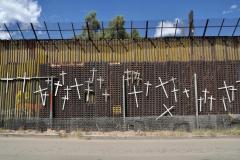Jineth Bedoya had planned to spend the morning of May 25, 2000, interviewing a paramilitary leader outside a prison in Bogotá.
Instead, the Colombian journalist was kidnapped at gunpoint and taken to a nearby warehouse, where she was beaten by a group of men who said they had been sent to “clean up the media.” As night fell, the men drove her hours outside of town, gang-raped her and abandoned her on the side of the road.
Bedoya, a reporter for El Espectador, a Colombian newspaper, spent the next two decades seeking justice from the Colombian government for the attack, even pursuing her own investigations when the authorities did not do their own. It took 19 years for three paramilitary leaders to be convicted in the journalist’s kidnapping, a case that grew to symbolize a pattern of sexual violence against women during Colombia’s civil war. Authorities have still not identified the intellectual authors behind the attack.
On Monday, the Inter-American Court of Human Rights found the Colombian state responsible for violating Bedoya’s rights, saying it found “serious evidence” of state participation in the attack, which it described as “torture.” The court condemned Colombian officials, saying they delayed the investigation of the kidnapping, did not properly address the threats Bedoya received leading up to the assault and discriminated against the journalist on the basis of her gender.
The announcement marked the first time the human rights court has released a judgment about sexual violence against a female journalist amid Colombia’s armed conflict, the Bogotá-based Foundation for Press Freedom said, calling it a “historic” move.
It “will go down in history as the day when a fight, which began because of an individual crime, led to the vindication of the rights of thousands of female victims and survivors of sexual violence and of women journalists who leave part of their lives in this profession,” Bedoya said in a statement.
The court ordered Colombia to adopt measures including a full investigation of her case and payment of damages. It also ordered the government to create, among other things, a training program for public officials and security forces focused on violence against female journalists, a fund to finance programs aimed at protecting female journalists and a database tracking violence against journalists.
In a March hearing with the court, the Colombian government accepted “international responsibility” for not carrying out a “dignified criminal investigation” of the case and apologized to Bedoya for the harm she experienced.
But representatives of Colombia also withdrew from that same days-long hearing, alleging bias among the judges overseeing the case. The Committee to Protect Journalists denounced the government’s move to “effectively stomp out” of the hearing, calling it a “slap in the face to every Colombian journalist — especially women journalists — fighting impunity.”
The government’s decades-long war — a complex internal conflict involving the left-wing Revolutionary Armed Forces of Colombia, or FARC, right-wing paramilitaries, the U.S.-supported military and drug cartels — left 220,000 people dead and millions displaced.
Throughout the conflict, sexual violence against women was a widespread and systematic “weapon of war,” according to the human rights court’s judgment. But the violence often remained invisible, overshadowed by the country’s other crises. Colombia’s National Center for Historical Memory has registered 15,760 cases of sexual violence from 1958 to 2021.
“It took me many months to stop feeling filthy and many years to allow a man to touch me again. Such a violation is not like a fist or a blow; it is a crime that destroys our lives,” Bedoya wrote in a piece for the Committee to Protect Journalists in 2016. “The second part of the nightmare came as I debated my next reality: Whether to commit suicide or go into exile. In the end, I chose neither. I chose to continue doing journalism in Colombia.”




